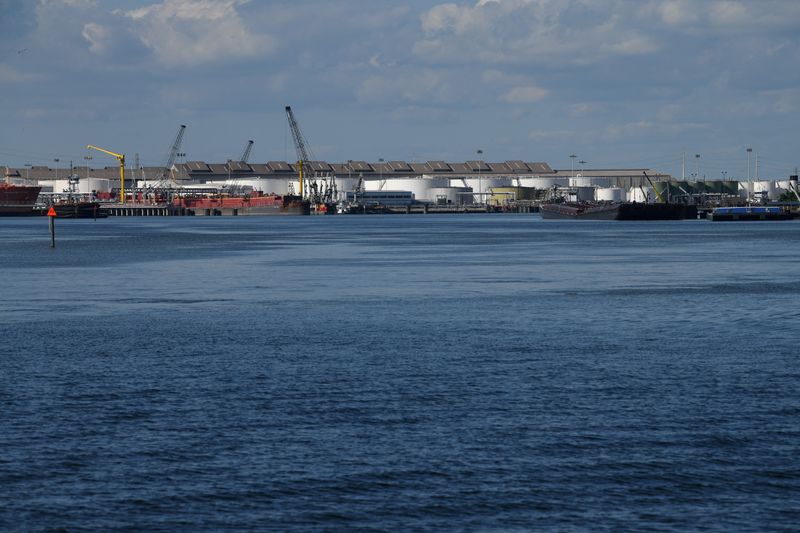Written by Lisa Baertlein
LOS ANGELES (Reuters) – U.S. retailers are taking proactive steps to mitigate potential cargo delays and financial risks in the event of a strike at key seaports such as New York and Houston in October, according to a trade economist on Tuesday.
The International Longshoremen’s Association, representing 45,000 dockworkers at U.S. ports from Maine to Texas, is currently in negotiations with employers represented by the United States Maritime Alliance over various issues, including automation and wages.
“Retailers are on edge about the looming threat of a strike at East and Gulf coast ports due to stalled contract talks,” said Jonathan Gold, vice president of supply chain and customs policy at the National Retail Federation.
Major retailers like Walmart, Target, Home Depot, and Amazon.com have already started importing holiday merchandise like laptops, Halloween costumes, and toys earlier than usual to avoid potential disruptions. These imports typically arrive between August and October.
In July, U.S. container freight imports saw a 14% year-over-year increase, marking the third-highest monthly level, according to industry data.
Economists believe that the accelerated import strategy has helped reduce the risk of a potential port strike. Additionally, it aims to mitigate other shipping disruptions such as attacks on commercial vessels, canal restrictions, and hurricane risks.
While the possibility of a strike remains low, experts suggest that both parties are under political pressure to reach a resolution, especially in an election year.
If a short strike were to occur, the financial impact is expected to be limited as shippers are prepared to adjust for such risks, according to industry experts.


